Get the App
For Doctors
Login/Sign-up
Last Updated: Aug 29, 2019
BookMark
Report
Dt. Debasish DuttaDietitian/Nutritionist • 16 Years Exp.D.Sc (Bio-engg.), P.G. Diploma in Diet and Nutrition
FRUITS TO BE EATEN DURING SUMMER
What are summer fruits?
Like the name suggests, the term “summer fruits” refers to a variety of fruits that are easily available, during the summer season. During the summer it is common for people to lose their appetites, which makes them stay away from rich and heavy foods. Fruits that are juicy and tart seem to be the most naturally cooling effect on the body, during summers. Hence, when it gets too hot, several people rely exclusively upon recipes made using summer fruits and vegetables. Summer fruits can be used in a variety of foods and beverages.
However, in addition to satisfying the taste buds and refreshing the body, most summer fruits are very healthy. This is because they are very high in vitamins and minerals, antioxidants, phyto-chemicals and fiber. The amount of fat that is present in most of the summer fruits is negligible, but there can be some exceptions.
Moreover, since the water content of most summer fruits is between 80% and 90%, they can help add a healthy and radiant glow on the skin.
List of summer fruits
There are several varieties of fruits that are available during the summer. Given below is a lost of some of the most common summer fruits, as well as the health benefits that are associated with it.
• Apricots: High in Beta carotene, which gets converted to Vitamin A by the body
• Berries: High in antioxidants and help the body fight off several diseases
• Cherries: Contain diuretic properties, as well as Vitamin C
• Honeydew melon: Help treating infections in the urinary tract
• Mangoes: Rich in Vitamin C & E & also contain potassium, iron & nicotinic acid
• Nectarines: Can help with fluid retention, constipation and high cholesterol
• Papayas: Great for weight loss and can also help in improving digestion. It is often used as a natural remedy for constipation too.
• Peaches: Can reduce anemia, fatigue as well as high cholesterol
• Pineapples: Contains antioxidants that protect the body against diseases and are also great
for digestion and weight loss.
• Watermelons: Can help treat kidney, bladder and other digestive problems
Once in season, it is easy to purchase these summer fruits and vegetables from anywhere, like a fruit market, or a grocery store. These fruits can all be mixed together to make a tasty and nutritious fruit salad or a smoothie. Fixing a salad is very easy as compared to other recipes. For those who are not really watching their weight, a summer fruit trifle could make a tempting dessert.
Summer is the season where the sun rays are at their highest peak. To stay well hydrated is very important in these days. Although most of the fruits like apples, bananas, or pears are now available through out the year, some fruits are seasonal. Summer along with the scorching heat also brings these sensational seasonal fruits like pineapples, watermelon, muskmelon, honeydew melon, mangoes, cherries, strawberries, and other beautiful berries. These fruits not only satisfy our taste buds but are also great as a part of a balanced diet. They provide vital vitamins and minerals, fiber, phytochemicals and antioxidants with negligible amount of fat. Fruits have approximately 80-90% water, natural sugars and give you a healthy, radiant looking skin.
Summer fruits and health benefits –
Watermelon – this summer fruit not only helps to quench the thirst but is also a good source of beta carotene, vitamin C, pectin, lycopene, potassium and iron.
Apricots – fresh apricots are good source of iron, vitamin C, beta carotene, potassium and fiber. Dried apricots help people with fluid retention and constipation. The health benefits of apricots includes anemia, cancer, skin diseases, fevers, earache, indigestion and constipation.
Berries – enjoy most of the berries in summer. Strawberries with stem intact can be stored up to one year with or without added sugar. The phytochemicals in blue berries, blackberries, strawberries helps boost immunity, have a protective effect against cancer, protects against heart diseases and circulatory problems. Cranberries have a healing effect in urinary tract infection.
Peaches and plums – contain good amount of vitamin C, beta carotene, antioxidant phytochemicals and anthocyanins all of which help to eliminate the free radicals from the body.
Papayas and mangoes – both are excellent source of vitamin C, beta carotene, vitamin A and fiber. Eating sufficient amount of mangoes alone can make the body a rich store of vitamin A which lasts for months.
Cherries – bright red cherries not only taste great but also contain ellagic acid which inhibits the growth of carcinogenic cells in the body.
Pineapples – besides being packed with most of the vitamins and minerals, pineapple is a very good source of an enzyme bromelain which aids digestion.
For variety you can even try fresh fruit salad with some flavored low-fat yoghurt or just a plain fruit salad for dessert.
A fresh fruit juice will also help to satisfy thirst and avoid dehydration in summer months. But avoid consuming preserved fruit juices which contains preservatives, added sugar and negligible fiber in it.
Summer is a great season to enjoy these delicious seasonal fruits not only to satisfy your sweet taste buds but also to gain maximum nutritional benefits from them.
What are summer fruits?
Like the name suggests, the term “summer fruits” refers to a variety of fruits that are easily available, during the summer season. During the summer it is common for people to lose their appetites, which makes them stay away from rich and heavy foods. Fruits that are juicy and tart seem to be the most naturally cooling effect on the body, during summers. Hence, when it gets too hot, several people rely exclusively upon recipes made using summer fruits and vegetables. Summer fruits can be used in a variety of foods and beverages.
However, in addition to satisfying the taste buds and refreshing the body, most summer fruits are very healthy. This is because they are very high in vitamins and minerals, antioxidants, phyto-chemicals and fiber. The amount of fat that is present in most of the summer fruits is negligible, but there can be some exceptions.
Moreover, since the water content of most summer fruits is between 80% and 90%, they can help add a healthy and radiant glow on the skin.
List of summer fruits
There are several varieties of fruits that are available during the summer. Given below is a lost of some of the most common summer fruits, as well as the health benefits that are associated with it.
• Apricots: High in Beta carotene, which gets converted to Vitamin A by the body
• Berries: High in antioxidants and help the body fight off several diseases
• Cherries: Contain diuretic properties, as well as Vitamin C
• Honeydew melon: Help treating infections in the urinary tract
• Mangoes: Rich in Vitamin C & E & also contain potassium, iron & nicotinic acid
• Nectarines: Can help with fluid retention, constipation and high cholesterol
• Papayas: Great for weight loss and can also help in improving digestion. It is often used as a natural remedy for constipation too.
• Peaches: Can reduce anemia, fatigue as well as high cholesterol
• Pineapples: Contains antioxidants that protect the body against diseases and are also great
for digestion and weight loss.
• Watermelons: Can help treat kidney, bladder and other digestive problems
Once in season, it is easy to purchase these summer fruits and vegetables from anywhere, like a fruit market, or a grocery store. These fruits can all be mixed together to make a tasty and nutritious fruit salad or a smoothie. Fixing a salad is very easy as compared to other recipes. For those who are not really watching their weight, a summer fruit trifle could make a tempting dessert.
Summer is the season where the sun rays are at their highest peak. To stay well hydrated is very important in these days. Although most of the fruits like apples, bananas, or pears are now available through out the year, some fruits are seasonal. Summer along with the scorching heat also brings these sensational seasonal fruits like pineapples, watermelon, muskmelon, honeydew melon, mangoes, cherries, strawberries, and other beautiful berries. These fruits not only satisfy our taste buds but are also great as a part of a balanced diet. They provide vital vitamins and minerals, fiber, phytochemicals and antioxidants with negligible amount of fat. Fruits have approximately 80-90% water, natural sugars and give you a healthy, radiant looking skin.
Summer fruits and health benefits –
Watermelon – this summer fruit not only helps to quench the thirst but is also a good source of beta carotene, vitamin C, pectin, lycopene, potassium and iron.
Apricots – fresh apricots are good source of iron, vitamin C, beta carotene, potassium and fiber. Dried apricots help people with fluid retention and constipation. The health benefits of apricots includes anemia, cancer, skin diseases, fevers, earache, indigestion and constipation.
Berries – enjoy most of the berries in summer. Strawberries with stem intact can be stored up to one year with or without added sugar. The phytochemicals in blue berries, blackberries, strawberries helps boost immunity, have a protective effect against cancer, protects against heart diseases and circulatory problems. Cranberries have a healing effect in urinary tract infection.
Peaches and plums – contain good amount of vitamin C, beta carotene, antioxidant phytochemicals and anthocyanins all of which help to eliminate the free radicals from the body.
Papayas and mangoes – both are excellent source of vitamin C, beta carotene, vitamin A and fiber. Eating sufficient amount of mangoes alone can make the body a rich store of vitamin A which lasts for months.
Cherries – bright red cherries not only taste great but also contain ellagic acid which inhibits the growth of carcinogenic cells in the body.
Pineapples – besides being packed with most of the vitamins and minerals, pineapple is a very good source of an enzyme bromelain which aids digestion.
For variety you can even try fresh fruit salad with some flavored low-fat yoghurt or just a plain fruit salad for dessert.
A fresh fruit juice will also help to satisfy thirst and avoid dehydration in summer months. But avoid consuming preserved fruit juices which contains preservatives, added sugar and negligible fiber in it.
Summer is a great season to enjoy these delicious seasonal fruits not only to satisfy your sweet taste buds but also to gain maximum nutritional benefits from them.


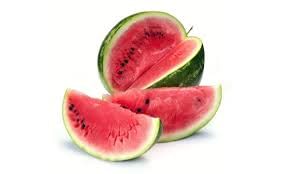
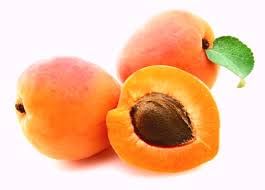
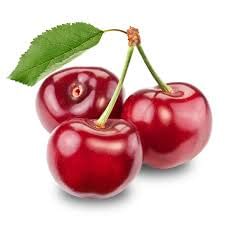
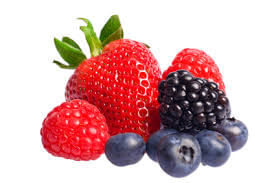
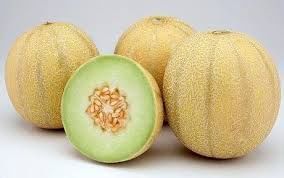
+1.svg)
